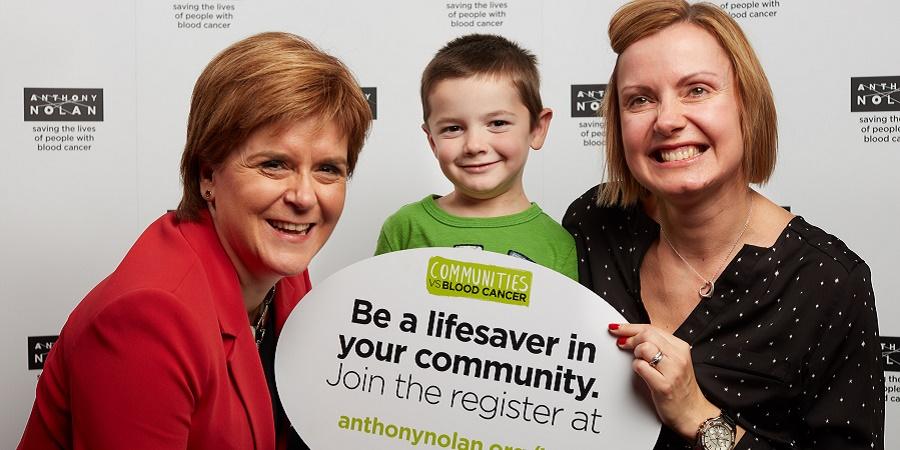With our authority, credibility, and expertise, we have already achieved great results. Our influence has promoted the interests of our patients, for example, by campaigning for access to second transplants and gaining traction for our post-transplant care pathway. Below, you can see some of our stand-out successes.

Educating future lifesavers in schools
We campaigned to get the Government to include information about stem cell donation in new Health Education guidelines for secondary schools in England. We submitted evidence to the consultation, which ultimately received more than 11,000 responses from leading charities – including Anthony Nolan – and teaching unions.
As of September 2020, all secondary school pupils in state schools across England between the ages of 11 and 16 now have the opportunity to learn about stem cell donation.
With an average of 550,000 students in each year group, the new guidelines will equip young people with the scientific facts of stem cell donation so they can make an informed decision about becoming a potential donor once they turn 16.
With nearly 10 years’ experience of educating young people about stem cell, blood and organ donation, we have supported the Department for Education since the announcement with the practical implementation of the guidelines.
Defend second transplants
Before 2017, patients with blood cancer and blood disorders in England who relapse would be denied a second stem cell transplant due to public funding.
On Friday 24 February 2017, NHS England announced that they would routinely fund second stem cell transplants for patients who relapse more than one year after their first transplant. This replaced the December 2016 announcement that second stem cell transplants were ‘not currently affordable’.
Why do some patients need a second transplant?
Every year, a small number of patients with a blood cancer or blood disorder who have already received one stem cell transplant from a donor will unfortunately relapse (their disease will come back). For some of these patients, their doctor might recommend a second donor stem cell transplant. It is estimated that 16 to 20 people every year in England will need a second transplant because their blood cancer or blood disorder has relapsed.
Which patients does this decision affect?
This decision affects a small number of patients in England who:
- have received a first donor (allogenic) stem cell transplant
- were in complete remission
- relapsed more than 12 months after their first transplant
- their doctor now recommends a second stem cell transplant.
This decision does not affect patients who suffer graft failure (their first transplant fails) or patients who have received a first transplant using their own cells (autologous).
Why does this decision only apply to patients who relapsed more than 12 months after their first transplant?
The recommendation of clinical experts is that patients who relapse more than 12 months after their first transplant have the best chance of a successful second transplant. Unfortunately, there is weak evidence for the effectiveness of second transplants for patients who relapse within a year of their first donor transplant.
If you or someone you know is going through a transplant and wants more information about second transplants, head to our Patient Services team section to get support.